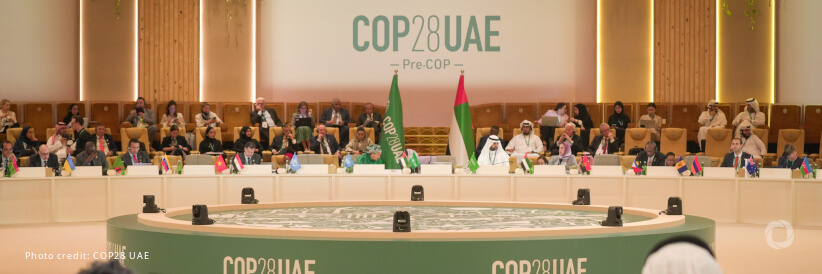COP28 got off to a fast start, but negotiations have since faltered, with the outcome of the pivotal Global Stocktake uncertain.
Dr Stephen Cornelius, WWF Deputy Global Climate and Energy Lead said: “The first week of climate negotiations in Dubai saw some surprising successes and some frustrating failures. The UAE’s COP28 President, Sultan Al-Jaber, kicked off the talks with a fast start by resolving the competing agenda proposals. The opening plenary then unexpectedly adopted the decision establishing the loss and damage fund, paving the way for over US$700 million in pledges in the subsequent days”.
Country negotiators got down to work on dozens of topics, with progress often slow and difficult. They have produced outputs ranging from a long draft text on the Global Stocktake with multiple options – importantly including one on a fossil fuel phaseout; a truncated text on the Mitigation Work Program because some countries remain opposed to any substantive content; gravely inadequate progress on the Global Goal on Adaptation; and no progress on food systems – where the can was kicked down the road for six months. Nature featured in the draft Global Stocktake text, but merely recognition rather than on the needed action.
See also: Unveiling COP28: A critical meeting to address climate change
“The texts produced in the first half of the COP – often with many options and disagreements remaining in brackets – have now been handed to the Presidency. The COP28 President has indicated that they will continue technical negotiations alongside minister-led and heads of delegation consultations in the remaining five days. Overall, the progress was typically slow and didn’t reflect the urgency called for by science and people suffering from the climate crisis. There is a lot to do in the remaining five days of negotiating time to achieve the course correction needed to adequately respond to the climate emergency”.
In next week’s political phase of the negotiations, ministers under the COP28 Presidency’s guidance must strengthen the texts, bring in missing elements, and resolve disagreements. They must keep the strongest elements of the Global Stocktake text, especially on a fossil fuel phaseout and emissions reductions needed by 2035.
On the Global Stocktake and Nature, Shirley Matheson, WWF Global NDC Enhancement Coordinator, said: “It is concerning that the current draft of the Global Stocktake does not include a reference to nature-based solutions. The current text also does not recognize the need to safeguard and enhance 30-50% of land, ocean, and freshwater carbon sinks. This is a missed opportunity to bring together action for climate, nature, and people. We need to see this change, aligned with the latest IPCC science. It is critical that ministers now step up and ensure that nature-based solutions, together with action to reform our food systems, are included in the final text. The Global Stocktake must provide the guidance needed by countries to update their climate and biodiversity plans to put them on a pathway to rapidly reduce emissions and restore nature.”
João Campari, WWF Global Food Lead, added, “The fact negotiations on the Joint Work on Agriculture and Food Security have failed to deliver any agreement, and food systems are currently being sidelined from the Global Stocktake, is deeply disappointing. Those in negotiation rooms cannot be tone-deaf to science and urgency. We will not achieve any of the long-term goals of the Paris Agreement without more ambitious, comprehensive, and equitable climate action on food”.
With Joint Work negotiations not resuming until June 2024, an opportunity to take a big step forward on climate action has already been wasted – negotiators can’t squander another by excluding food systems transformation from the Global Stocktake. It has to be reinstated – and meaningfully. Formal negotiations need to match the ambition shown by the COP28 Presidency and various public and private actors, or the world risks the initial promise of COP28 going unfulfilled.

